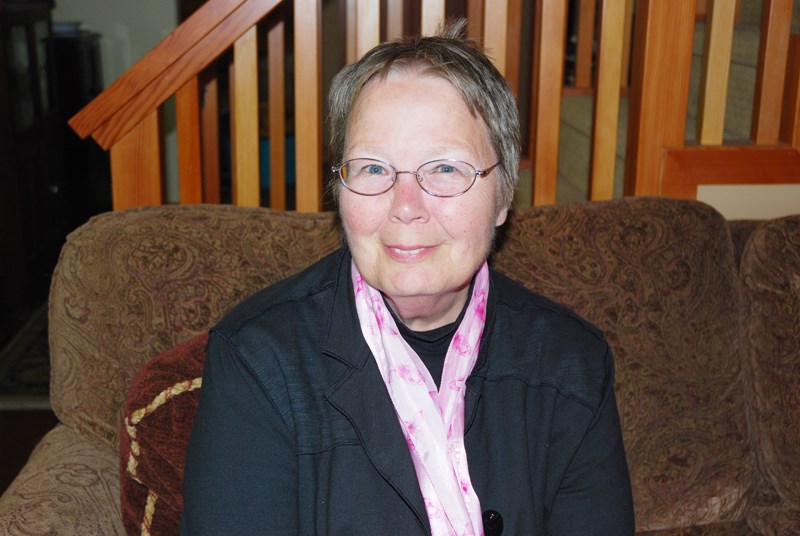Halfmoon Bay resident Dana Brynelsen will receive an Order of British Columbia for being a “visionary in the field of early childhood intervention for people with special needs.”
“I was born and raised in B.C. and I love this province. I have a passion for it and I have worked all my life for the services for children in the province, so it’s a great honour,” Brynelsen said. “But more than for myself, and I’m not saying this to be humble or anything, but truly, this was always a team effort. I worked with amazing people all across the province.”
Originally trained as a teacher who got her start in Madeira Park, Brynelsen spent time teaching in northern B.C. before taking a position in 1973 with what is now known as the Developmental Disability Association in Vancouver to run an “infant home care program” they had developed.
“It was a little program to visit families in the home who had infants from birth to three with special needs, to support the parents,” Brynelsen said.
Soon other communities heard about the effort and started contacting Brynelsen asking for the service in their areas.
Brynelsen said the public’s view of children with special needs was very different in the early ’70s and the program was innovative.
“The respected, professional advice at that time, not from every professional of course, but still from some, was that for children with significant intellectual disability, the institution was the best place for the child,” Brynelsen said. “Children with intellectual disability were not educated in the public schools.”
Within two years the demand for the infant home care program was “significant,” Brynelsen said, and a movement was forming.
“The context of the time was it was the right time, absolutely the right time. There were changing views of intellectual disability. Parents were saying ‘we don’t want our children in an institution, they can learn,’ and the Ministry of Social Services in B.C. had just taken over services for all the institutions from the Ministry of Health. I think that was actually quite significant,” she said.
“It moved from being seen as a medical problem to maybe a social one, and as social, maybe families could be doing more.”
In 1975 a provincial steering committee to oversee the further development of the infant home care program (eventually renamed the infant development program) was struck, and Brynelsen was asked to be the provincial advisor.
Under her leadership, the infant development program thrived.
“By 1975 I think we had five or six programs, and when I left the field in the beginning of 2010, there were 55 programs. We served about 8,000 families a year and there were an additional 45 Aboriginal infant development programs,” Brynelsen said.
“We were involved in supporting the development of these services across the country.”
She refuses to take all the credit for the work that ultimately led to her nomination for an Order of B.C. award, which will be bestowed upon her at a ceremony in November.
“The whole thing was really revolutionary and it caused some huge battles for years and years and years because there were some people for whom it was very difficult to give up the power and control that they’d had for so long. Without the support of some key parents who were very influential and some key professionals, pediatricians and physiotherapists, I know we wouldn’t have been successful,” Brynelsen said.
“That’s what I mean about this being a collective effort.”
The Order of B.C. will be extended to 25 individuals this year who have “contributed to the province in extraordinary ways.”
It’s B.C.’s “most prestigious accolade,” according to Lieutenant-Governor Judith Guichon, Chancellor of the Order.
“For 25 years we have publicly recognized those who have dedicated themselves to bettering the lives of their fellow citizens. These recipients exemplify the positive difference one person can make in a community and are an inspiration to all British Columbians,” Guichon said.



